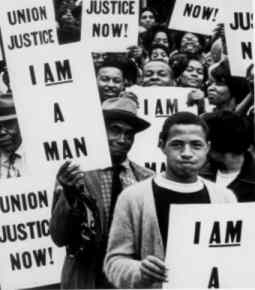
Unions and politics, perfect together
nions Should Organize, Not Politicize
More collective bargaining, not government action, is what workers need most.
By Kelly Candaele, KELLY CANDAELE worked for the Los Angeles County Federation of Labor, AFL-CIO, for several years.
August 17, 2006
LAST MONTH, the Chicago City Council voted to require all big-box stores — those with at least 90,000 square feet of retail space — to pay their employees a "living wage": $9.25 in 2007, $10 in 2010, and inflation-indexing thereafter. Although the move will affect large retailers such as Sears and Home Depot, the primary target of the ordinance is nonunion Wal-Mart, the largest private-sector employer in the country.
Not surprisingly, AFL-CIO leaders heralded the vote as a triumph for workers who barely scrape by on Wal-Mart wages while scrambling for meager benefits. For the labor movement, Wal-Mart is the prime symbol of both "low-road" capitalism and the decline of American manufacturing.
But this may be only a partial victory for progressive forces in Chicago. The American labor movement is using political power to make up for its own failure to organize new unions. It's unclear whether this trend is a sign of weakness or strength.
Throughout American labor history, a debate has raged about what the appropriate approach to government should be. Samuel Gompers, the 19th century founder of the American Federation of Labor, advocated steering clear of bureaucratic entanglements and focusing instead on "pure and simple" unionism — wages, benefits and working conditions. Workers, he argued, would be more loyal to unionism if they won their own gains, rather than having them granted by the state.
During the crucible of the 1930s, the dynamic shifted toward political involvement. Labor's dramatic organizing gains during the Depression came partially as a result of President Franklin D. Roosevelt's more positive attitude toward unionization. Industrial workers flocked to new unions in the auto, steel and rubber industries, and Roosevelt gained a powerful new constituency. He signed the National Labor Relations Act, guaranteeing workers the right to organize and outlawing many employer practices designed to thwart unions.
............................
Although these victories should be hailed, what government gives, government can take away. The National Labor Relations Board, which once served as labor's protector, is now an impediment to organizing. And if workers see the government as the source of their benefits, what incentive do they have to join unions?
Wasn't Gompers a die hard racist who refused to let blacks join unions? And didn't unions only grow when blacks joined the UMW and UAW?
Why did political involvement become important in the 1930's? Because they had the first pro-union president in the White House. Who, instead of sending the Army to break up the sitdown strikes of 1937, send his Labor Secretary, Frances Perkins to negotiate. Remember Homestead? Well, that's why politics mattered. Unions deliver votes. Votes get people elected.
Some people need to have things explained to them slowly. If the NLRB is a problem, it's because there are staunch cheap-labor conservatives in Washington. The only way to remove them is to vote them out. You can't talk them out or bullshit them out.
Wal Mart spends millions on politicians, how are unions supposed to ignore than and "organize". Wal Mart's political patrons have made that hard as is. Without a countervailing influence, that will never happen and you can only protect union gains with politics.
No comments:
Post a Comment